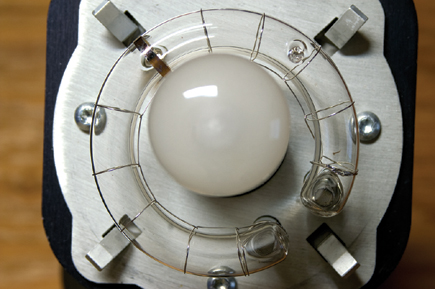JTL’s Mobilight DC-600; Have Light, Will Travel Page 2
 |
|
 |
|
|
But digitalized controls aside, the real beauty of the JTL Mobilight DC-600
is the battery power supply. The JTL Lithium Battery Pack is claimed to be environmentally
safe. Instead of lead-acid, which is an extremely nasty substance, it uses lithium
powder, which is non-polluting. For someone, such as myself, who recycles AA
and AAA batteries, this is a good thing. (The DC-600 head can only be used with
the Lithium Battery Pack, the 200/300 Mobilight head can also be used with AC
power, which means longer life for the battery.)
The Lithium Battery Pack will power one DC-600 head or two 200/300 heads for
up to 500, 1400, or 2000 flashes respectively per full charge. And because the
battery quickly and easily separates from the output box you can carry as many
extra batteries as you require to the location. Not only that, but unlike conventional
rechargeable batteries the JTL battery has no charge memory. That means you
can keep it fully charged without having to let it run down before recharging.
There are only two real weaknesses of this unit. The first is the modeling light,
which I felt was underpowered when used with an umbrella. The second is the
recycle time, which I found to be slower than I am accustomed to. I spoke to
JTL about this and was told a faster recycle time was possible but it would
mean shorter battery life--not charge life but actual battery life. After
a while I got used to it, at least with the subjects I was photographing. Perhaps
if I were working with the bathing suit models on the beach, who are constantly
in motion, it might present a problem.
 |
|
|
The flash tube is smaller than any I have ever seen. The smaller the tube,
the more concentrated the light. This equates to greater power output. I tested
this against my own White Lightning (WL) lamps. Adjusting the power levels to
be the same at 10 ft and ISO 100, the WL lamp head produced an f/stop of 16.1
while the JTL read 16.5, 4/10 of a stop difference. Not earth-shattering but
notable. At full power the JTL produced f/22 at 10 ft and ISO 100.
Power adjustments can be made in 1/10 or 1/2 unit increments. In future units
I would like to see the ability to make one unit adjustment instead of 1/10.
For me, this would be a greater asset for tabletops. Especially in light of
the precision digital control.
When the DC-600 arrived all that came with it was the lamp head and the DRR
and DRC for me to try. I visited their website, www.jtlcorp.com, to see what,
if any, accessories were available for the DC-600. I was surprised to find an
extensive line of light modifiers and accessories. Softboxes, strip lights,
hairlights, umbrellas, barn doors, gels--all the things I require to create
and modify light on my varied assignments, both in the studio and on location.
I also discovered that accessories from other manufacturers, such as Photoflex,
which I use, will also work with JTL lamp heads.
With the two caveats, recycle time and the intensity of the model light, I found
this to be a well designed flash unit and a welcome solution to location lighting
without the need to rent or own a generator. It can also be used with confidence
in a studio setting--f/22 at 10 ft is a healthy output for any monolight.
My only question was: Where was the DC-600 when I was chasing bathing suits
up and down Malibu Beach?
The JTL Mobilight DC-600 Kit has an MSRP of $829, and includes a DC-600 lamp
head, battery, DRR, reflector, power cable, and sync cord.
For more information, contact JTL Corporation, 14747 Artesia Blvd., 3-G, La
Mirada, CA 90638; (714) 670-6626; www.jtlcorp.com.
- Log in or register to post comments

































